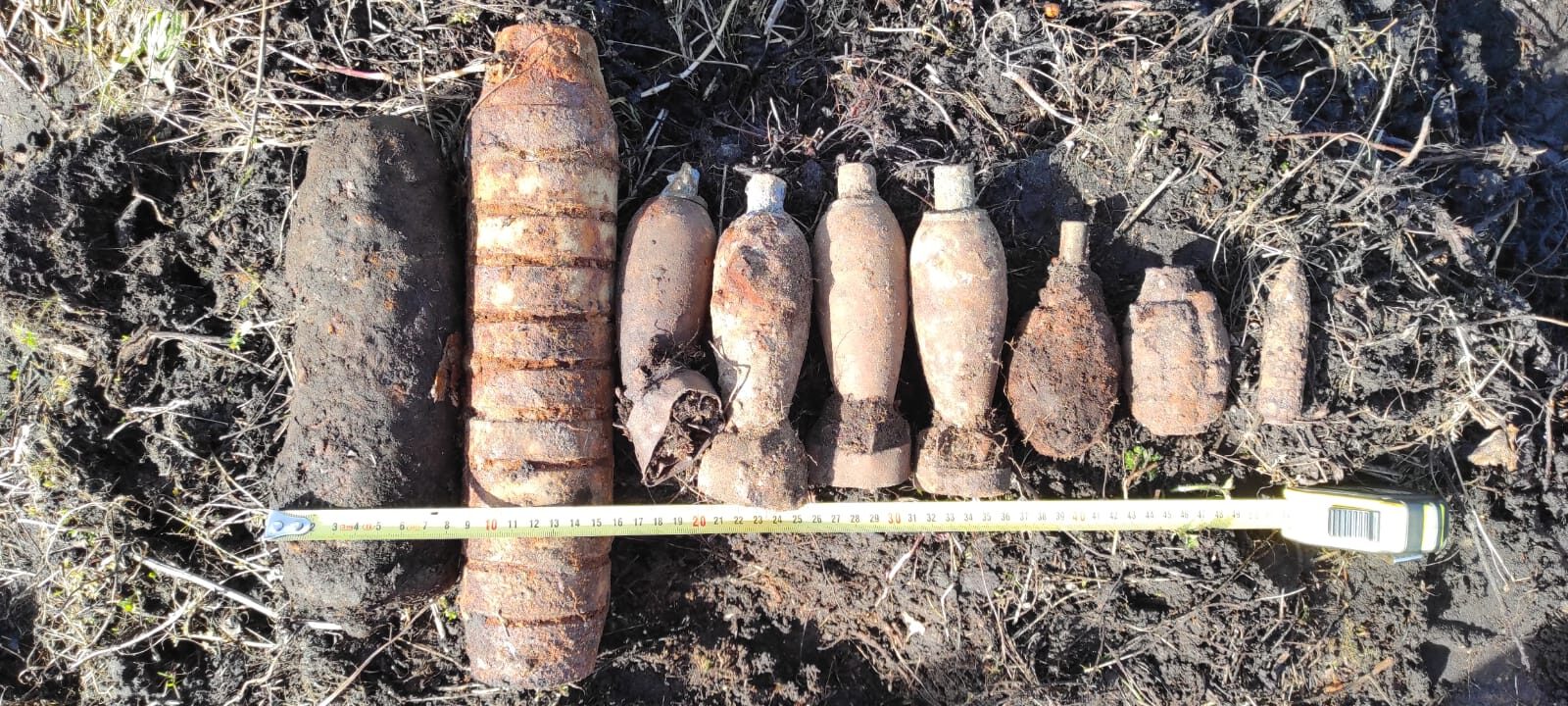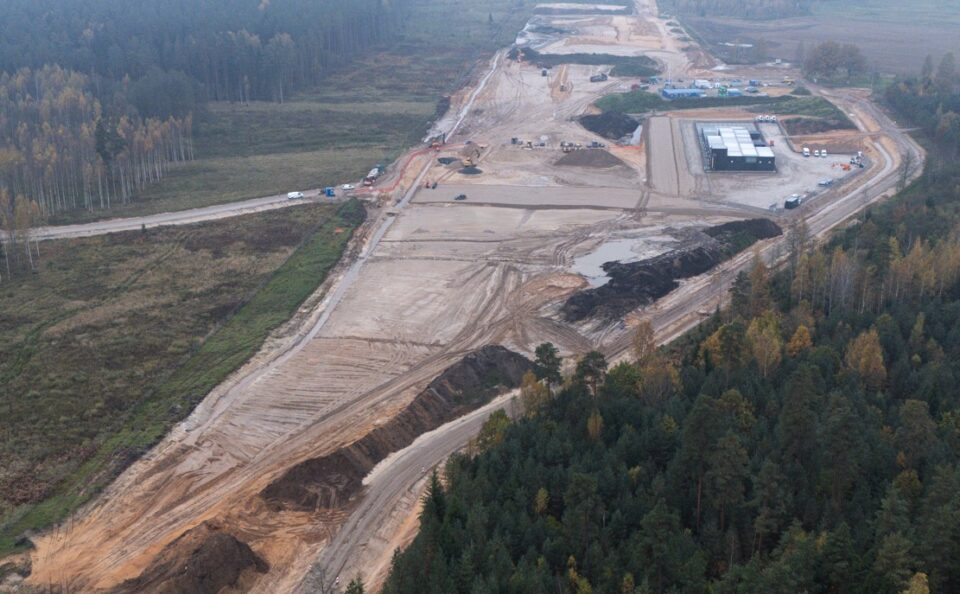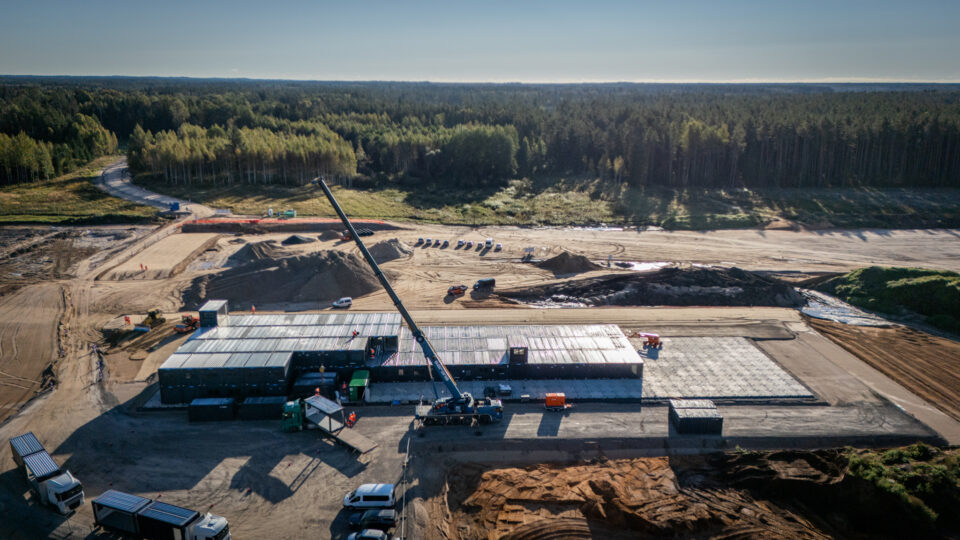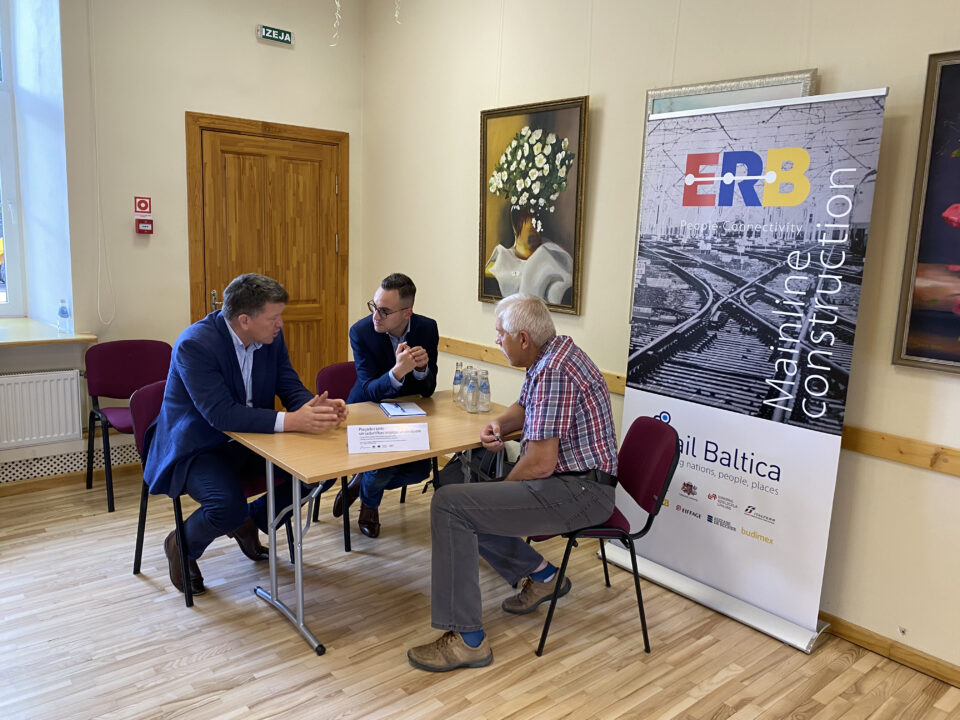100 kg aerial bomb defused on construction site of Rail Baltica mainline

Search for unexploded munitions on the future Rail Baltica mainline construction site near Iecava resulted in the discovery and disposal of 17 different types of historic munitions, including an unexploded aerial bomb weighing nearly 100 kilos.
“The explosives found confirm that the search for unexploded munitions is an essential stage of construction to prevent risks to human health and life and to ensure safe conditions for construction work,” emphasizes Andy Swift, the Project & Construction Directorof general partnership E.R.B. Rail JV PS (ERB Rail), the General Contractor of the Rail Baltica mainline.
The search for historic unexploded munitions on the approximately 16-hectare site started in February in compliance with international security requirements. The works were carried out by sappers and unexploded munitions neutralisation experts of the Latvian National Armed Forces, using modern technologies that enable efficient scanning of the soil and identification of possible munition remnants. The scanning identified 977 anomaly points – places where metallic objects in the ground show deviations from the natural magnetic field.
Each anomaly point indicates a possible explosive object, such as aerial bombs, hand grenades, cluster munitions or other metallic objects, which may also turn out to be metallic waste, stones with an iron composition or other harmless objects. All anomaly points have already been checked, and 17 explosive objects have been found, including one aerial bomb, hand grenades, artillery shells, cluster munitions, etc.
When explosive objects are found, a safety area is immediately established according to their type, all active works on the construction site are stopped and the State Police are informed, who further coordinate actions with specialists of the National Armed Forces.
After assessing the hazard of the explosives found, the unexploded munitions neutralisation experts of the Latvian National Armed Forces decide whether to neutralise the munitions on site or to transport them for later neutralisation elsewhere.
“The aerial bomb, weighing about 100 kg, probably belongs to the period of the World War II. This type of bomb was widely used during the war and was intended to cause massive damage to infrastructure, airfields and other strategic locations.
The shell casing is heavily rusted, indicating prolonged exposure to the ground and typical weather damage. However, even in spite of the visible damage, such munitions may retain their explosive properties.
As aerial bombs were an important element of the World War II arsenal, there is a high probability that this bomb has survived from German or Soviet air raids on Latvian territory. Finding similar unexploded munitions is unfortunately, not uncommon nowadays. It is therefore important to inform the relevant security authorities immediately if any are found and to prevent unauthorised persons from approaching the site.
Discoveries of this kind are a reminder of the tragic pages of Latvian history and the need for regular site inspections, especially in areas where construction or land cultivation is actively taking place,” an unexploded munitions neutralisation expert of the National Armed Forces said.
Construction of access roads has started on the site, demolition of old outbuildings is planned to start soon, and ground works for a temporary modular office are also planned to start.
During the construction of the mainline, the area of Iecava Infrastructure Service Centre will serve as a logistics base and temporary office for the ERB Rail team to build the southern section of the mainline from Misa down to the Lithuanian border.
On general partnership ERB Rail
The international joint venture E.R.B. Rail JV PS (ERB Rail) is registered in Latvia and has been established by three of Europe’s leading engineering and construction companies in the road, rail, steel construction and large concrete construction sectors – Eiffage Génie Civil SAS (France), Budimex S.A. (Poland) and Rizzani de Eccher S.p.A. (Italy). ERB Rail has started to implement the contract for the construction of the mainline on 8 January 2024. The project is 81-85% financed by the Connecting Europe Facility and the remainder by the Latvian state budget. The beneficiary of the EU support and the project implementer is the Ministry of Transport


